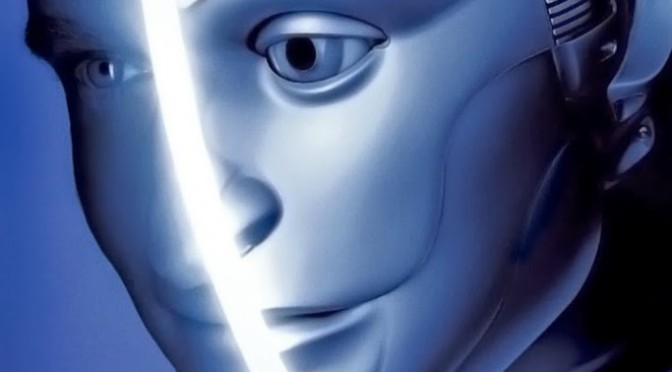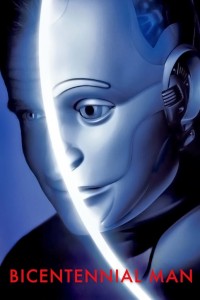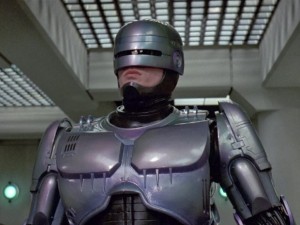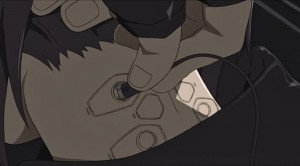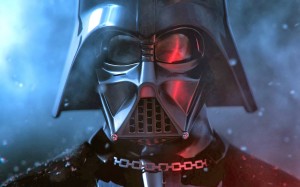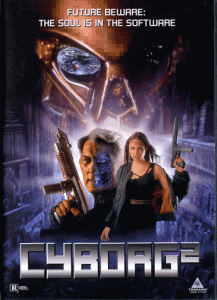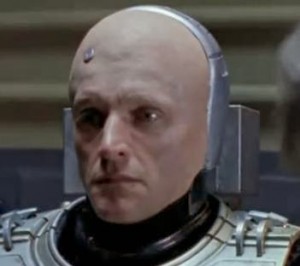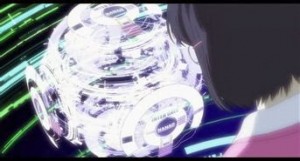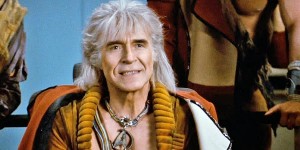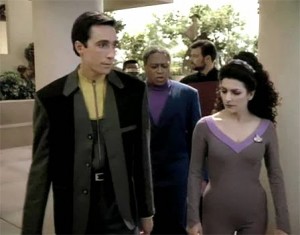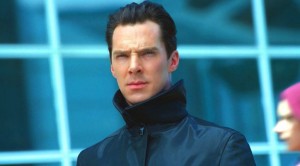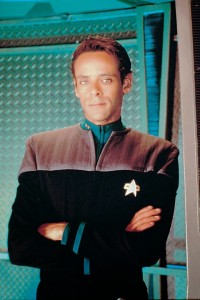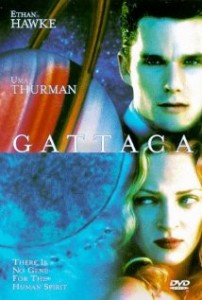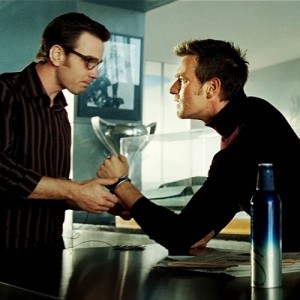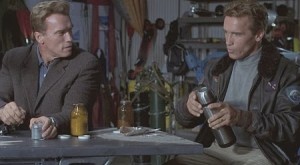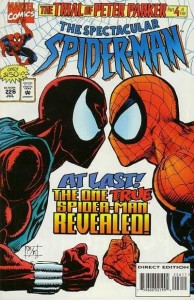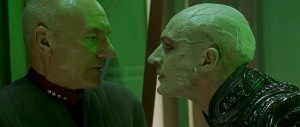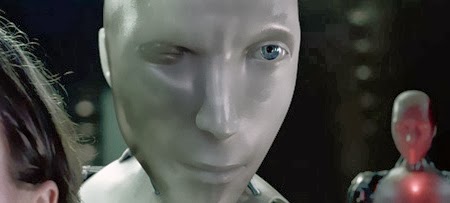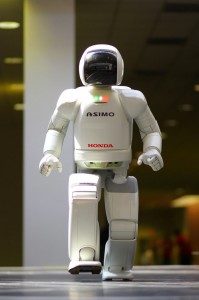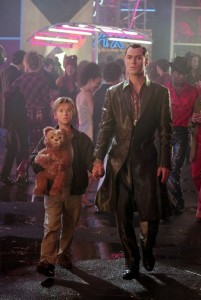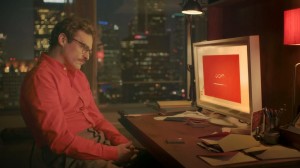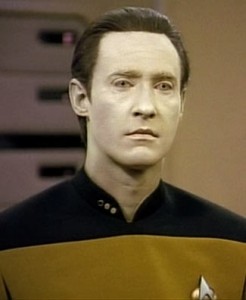The future of humanity is going to see a lot of changes as to what it means to be human. We’re going to create new versions of ourselves that we didn’t previously believe to be possible. But more than that, we’re going to create new things that look like us which may eventually even begin to think like us.
And we know this, we can’t escape it. Every time we successfully produce a robot that can walk on two legs or even fake an awkward smile, we’re stepping closer to that day when we may have to redefine humanity. And so, it makes sense that we have a lot of stories in science fiction that explore these things. We need to write them to explore the possibilities and address the issues we have with the ideas of a new, unfamiliar world that may be come.
One of the best examples of these sorts of stories is the film Robocop. Alex Murphy, killed in the line of duty, is brought back from the dead in a Cyborg shell, stripped of his memories and his sense of identity. The people who created his new body, OCP, don’t want him to have that humanity intact because it would get in the way of making him a cold, calculated law enforcement machine. But in the end, isn’t that free will and sense of compassion part of what makes a good police officer? It’s a fascinating question to explore and seeing Robocop’s new life unfold is both inspiring at points and incredibly tragic at others.
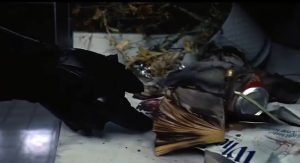
But when looking at the remake, it becomes clear that the new take on Alex Murphy’s life is going to go in a very different direction. The new Alex is aware of who he is and how he has been changed. The new Alex remembers his family and he remembers what they mean to him. There are decisions clearly made in the production of this new film to try to make Robocop more human than he was before. But does it really help make him more human? Wasn’t the tragedy of the original Alex Murphy already human enough?
It does lead one wonder just how exactly you approach making some of these sci-fi archetypes more relatable despite their superhuman qualities.
Cyborgs
These characters should be the easiest to make “human” because they already are. Despite all of the technology behind their creation, they’re still a human mind at the helm of a superhuman body. For some stories this means that the Cyborg factor hardly requires addressing, they continue to go on being human with the added benefit of superhuman power. But in other cases, such as Ghost in the Shell, there are fascinating avenues to explore.
What makes us human? Would having our bodies replaced with mostly machine make us something else? Can you really be “more machine than man”?
These are questions worth exploring, and if done right, make the human experience that much more fascinating for everyone involved – both audience and writer.
Unless You’re Doing It WRONG
The point of the Cyborg archetype is that they are, in some fashion, alive. There is biological matter in them that gives them that spark of life that a robot doesn’t have. This means that there is, in some way, part of them that is meant to function like a living creature would. This got muddled along the way due to Terminator using the term “Cyborg” to describe their robot wrapped in fleshy matter and the result you got were a lot of horrible movies based on the idea that “Cyborg” and “Android” were interchangeable.
But here’s the thing: They’re not. If you write a story about a Cyborg, there better be some consideration for what exactly it means when you write about a Cyborg. If you write a Cyborg like an android, or if you’re writing about an android and just calling it a Cyborg, you’re not only missing the point but you’re going to get a severe eye roll from anyone who knows the difference. If you’re going to address the fact that they are not entirely human, you best make sure that the human part matters as much as the machine or you’re just creating an empty, two-dimensional action figure and calling it a character.
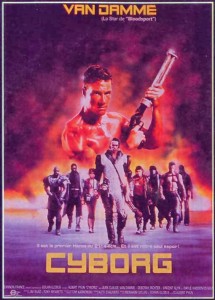
Done Right
The Cyborg is a beautiful opportunity to explore what exactly makes people tick. When Robocop loses his emotions, he loses part of himself that we all know to be vital. We can understand, intuitively, why he seems so angst ridden when he finally does start to regain those parts of himself. His life has taken a horrible turn and the fact he is starting to remember that but can’t actually deal with it because he lacks the emotional toolset he once had is the kind of great horror many of us hope to never go through. It would have zero impact if he were just an android with a human face because that entity wouldn’t have lost something that once established the core of their being.
It is also true that the Cyborgs of anime series such as Ghost in the Shell and Appleseed establish the more abstract but profound ideas that changing our physical state may sometimes change our mental state in ways we didn’t quite see coming.
Either one of these is a wonderful exploration of the mind, one that could only really be carried out via Cyborgs. And if you were to take the Cyborg archetype and ignore these storytelling possibilities, you’re playing with the wrong figures. But, then again, sometimes creators have problems with anything that isn’t quite a normal human, such as…
Genetically Engineered People
This is another one of those that should just be the easiest ever. Genetic engineering, like cybernetics, is starting with the human template and adding on top of it. How does this change their world view, what about them is different from the traditional human? Those are the questions which drive a good story about genetic engineering. And sometimes the personal conflict can take directions with these characters that couldn’t be taken with the mundane human race.
Unless You’re Doing It WRONG
This is one of the places where Star Trek has an unfortunate record of being driven by phobia of a scientific field. Genetic engineering in the Star Trek universe is portrayed negatively almost universally. In the original series, genetically engineered people were super-villains to be feared to the point that the greatest villain of the entire franchise was a genetic supersoldier from the past. When done right, this character was actually one of the best characters to have been conceived by the franchise, but when done wrong…
The lack of the interpersonal relationship and the backstory only showed just how much the Star Trek universe treated the character like a bogey-man without much cause. In fact, a character in a later series, Deep Space Nine, was revealed to be a genetically engineered genius. The response was to try to expose him as though he’d just come out as a Communist in the Cold War Era United States.
Rarely did the story ever have time to reflect on the actual nature of being one of these people, it was always too busy reflecting on the moral implications of whether people should even be allowed to do it (often with very little evidence to support the argument). Because of this, besides the one token good guy with genetic engineering in his background, the usual story for genetic engineering in Star Trek featured one of two things: ruthless superhumans or socially crippled, back-water xenophobes.
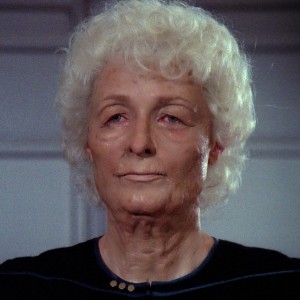
Done Right
One of the reasons why I love Gattaca is the fact it’s one of the few times where genetic engineering is really explored not just as a concept but as a state of being. While some say it is also phobic of the science, the truth is that genetic engineering is never portrayed as the bad guy in the story. The people of Gattaca are engineered to be perfect, but they’re not because they’re still human. They still have fears, insecurities, personality flaws and problems. They’re still subject to the laws of nature and random circumstance.
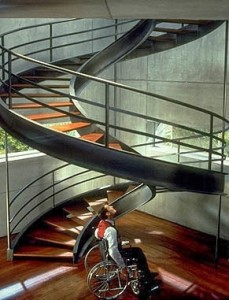
And because of this, they’re fully formed human characters. They have the genetic status to be considered “superhuman” compared to a modern person (played in this case by our scrappy hero Vincent), but are forced to face the burden of having to live up to the genetic destiny they’ve been handed. For some, this is a blessing, for others, this is a curse. But regardless of this genetic destiny, they are people, defined by their lives and their personalities, not by their genetic status.
Of course, that makes the next one really challenging in some ways…
Clones
The ultimate challenge to the concept of individuality and self, cloning is something that scares the hell out of people. Clones aren’t just lookalikes or relatives, they are a second version of yourself and that means you’re not very original yourself. So, the stories write themselves, right?
You’re going to remember now that most clone stories have gone…poorly.
Unless You’re Doing It WRONG
There is a problem with clone stories, a horrible one. Namely, almost every clone story since the beginning of clone stories has consisted of one of two stories: the clone is either evil, or the clone doesn’t know it’s a clone. This was an interesting story the first dozen times but it has run its course and a lot of times it’s just used as a way of introducing a surprise twist into the plot, a cheap twist the likes of an M Night Shyamalan movie.
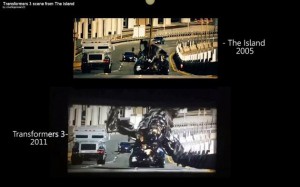
The problem with the plotline is that you’re really just using the clone as a twist without a plot. You don’t really have much of a story to tell in a lot of these variations and you’re leaning hardest on the idea that people will be surprised when they realize who is or isn’t the clone out of the pair.
Alternatively, if the clone is evil, we once again go back to the uninteresting mustache twirling that Star Trek pulled with genetic engineering.
Done Right
For a very long time, there weren’t any really good representations of the plotline that weren’t falling into the same two tropes over and over again. But recently a show has popped up that has presented a new, more interesting take on the concept: Orphan Black. In Orphan Black, the cast of characters (many roles played by a single actress) are well aware they are clones and all approach the concept of their state of being differently. Some are angry, some are defiant, others are in denial. But all of them are people unto themselves with personalities and backgrounds of their own, faced with the same problem and trying to cope with it the way their lives have taught them to cope.
This is a good cloning story, having characters start off with an identical origin and then deal with the fact they aren’t a unique little snowflake in their own, unique ways. In essence, while clones aren’t original physically, you can portray them original through emotions. And that’s a story worth reading or watching.
Androids
Which leaves us with the only one of these categories that isn’t human: Androids. Robots in general present a difficult task for writers. How exactly do you write a character to be sympathetic when that character is supposed to be as inhuman as possible?
But they’re a character worth including because they are totally on their way. We are decades, if not mere years, away from flipping the switch and starting up our first fully functional androids with independent AIs and the ability to walk and talk as naturally as we do.
When that day comes, those machines will quickly become part of our everyday lives as they grow to fill in gaps in the world that humans can’t or don’t want to fill themselves. We can’t ignore they exist and we need to include them in our stories so we can explore just what that world may become.
Unless You’re Doing It WRONG
The problem is that a lot of writers just say a character is a robot and then don’t actually present them as one. In the film Artificial Intelligence we’re presented with a little boy who is said by everyone to be an android (and he later lives for a very long time under the ocean without aging to prove the point) but has the emotional depth of any normal human child. In fact, all of the machines presented in that movie behave with all of the emotions you would expect of a human in that situation: hope, fear, despair – even pain, one of the hardest to imagine from a machine.
Perhaps we will someday have machines that can feel all of those, which, in itself, will be a fascinating world to explore. In fact, one film already did a pretty good job of showing what would happen if our machines were able to have a full emotional spectrum like that.
But most people who write the stories this way aren’t actually exploring emotional depth, they’re telling a normal story with the androids placed as a label to make it more “interesting” than the story would be if they were human. You couldn’t tell the story of a little boy being abandoned by his parents without having that little boy really be a mechanical child full of high-tech clockwork. At least, you couldn’t tell it while still being whimsical.
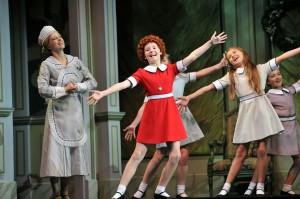
Done Right
This is Data. Data has a soul, even if he doesn’t know it. He has his own needs, wants and desires without a bit of emotion. It seems like an impossibility to portray someone having all of that without being able to feel those things, but he does. When you watch Data lose a relationship, you know more than anything that two things are true:
- he doesn’t “feel” anything over it
- he knows that he should
For as badly as I think Star Trek treated cloning and genetic engineering, they hit artificial intelligence right on the head. We may someday build machines that can be as lifelike as Data and yet never actually feel things we do. And when they become intelligent enough, like Data, they will realize that their lack of emotions is an anomaly among their human counterparts. This is a story worth telling because it says not only something about humanity but about the things we may very well one day construct.
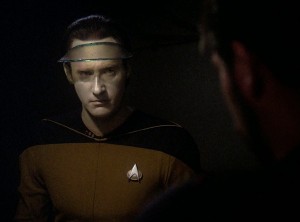
When Isaac Asimov wrote his many robot stories and had them become an integral part of our everyday lives, he likely wasn’t very far off from what our future may look like. His stories may have eventually gone off the reservation, but the basic idea is no doubt likely to come true: we will one day stand by artificial people. Someday, that may mean we won’t know the difference between the biological and the synthetic. But for today, we must accept that when we create these machines they will not be perfect replicas of us, they will not understand us perfectly. We must acknowledge this and let it be reflected in our works, whether the character we write is a positive or negative reflection.
For one day, they will also see our art…
Maybe we should try to make a good impression.


